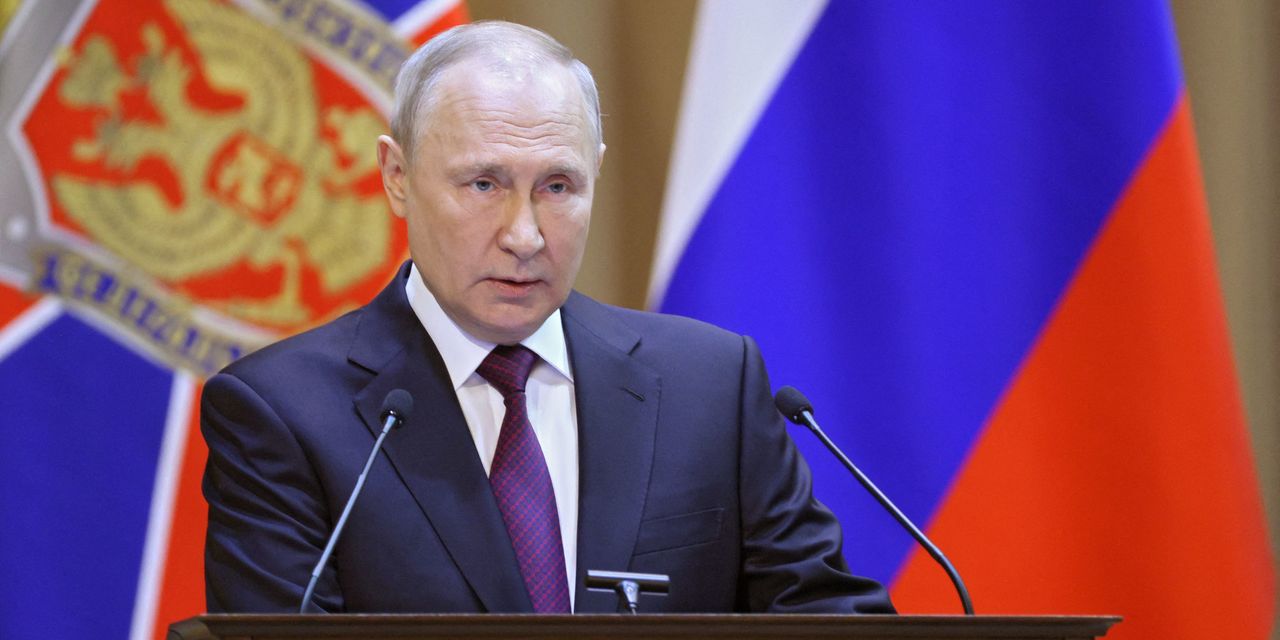Russian troops defending Moscow from an advancing mercenary force withdrew on Sunday after the mercenaries retreated, but the weekend’s tensions still left questions about President Vladimir Putin’s hold on power.
Secretary of State Antony Blinken called the rebellion by Wagner Group leader Yevgeny Prigozhin a “distraction” for Putin, who has held power in Russia for two decades, adding it could open an opportunity for Ukraine as it launches a counteroffensive to Russia’s war there.
“This raises profound questions. It shows real cracks,” Blinken told CBS’ Face the Nation. “We can’t speculate or know exactly where that’s going to go. We do know that Putin has a lot more to answer for in the weeks and months ahead.”
The uncertainty could spill over into the markets, according to Clocktower Group’s chief strategist Marko Papic. Traditional safe-havens such as gold and the U.S. dollar could see a near-term pop and oil prices could move.
“In the long term, however, the big winners may be the economies that have been most directly threatened by Russia,” Papic wrote in a weekend note. “This would mean the Nordic countries of Finland and Sweden, as well as the Central European markets. And, obviously, Ukraine.”
Putin’s image was already bruised by his war in Ukraine, which has continued for 16 months amid a fierce Ukrainian resistance. Saturday’s march by Prigozhin’s mercenary Wagner Group exposed further weaknesses, the Associated Press reported, citing analysts.
Prigozhin, a Putin protégé, led a largely unchallenged advance toward Moscow on Saturday but ended it suddenly just two hours outside the capital in a deal to send him to neighboring Belarus, which has been friendly to Moscow’s Ukraine invasion. Charges of mounting an armed rebellion will be dropped, the AP reported, citing Kremlin spokesman Dmitry Peskov. Prigozhin ordered his troops back to their camps.
Blinken wouldn’t speculate on Putin’s whereabouts on Sunday, though the Russian president appeared on state television in Moscow in a prerecorded interview, Reuters reported.
Blinken told CBS, “We still don’t have finality in terms of what was actually agreed between Prigozhin and Putin. I suspect that we’re going to learn more in the days and weeks ahead.”
President Joe Biden talked with French President Emmanuel Macron, German Chancellor Olaf Scholz, and U.K. Prime Minister Rishi Sunak on Saturday, the White House said. They discussed the situation in Russia and affirmed their “unwavering support” for Ukraine.
Sen. Ben Cardin (D., Md.) told Fox News Sunday that the Wagner Group’s rebellion, however temporary, was a sign of Putin’s weakening power even among longtime allies. “Putin has lost his credibility with his own people,” Cardin said. “His account of why he went into Ukraine is now being challenged, I think, with public opinion and Russia itself.”
Retired U.S. Army Gen. David Petraeus, also a former director of the Central Intelligence Agency, told CNN’s State of the Union that Prigozhin “lost his nerve” in taking the deal and calling off his advance on Moscow.
“I think the government has been shaken,” Petraeus said. “Putin has been shaken personally. This makes him more vulnerable, arguably, than he has at any time in his two-decade rule of the Russian Federation. Who knows where this could go now.”
Write to Liz Moyer at [email protected]
Read the full article here




